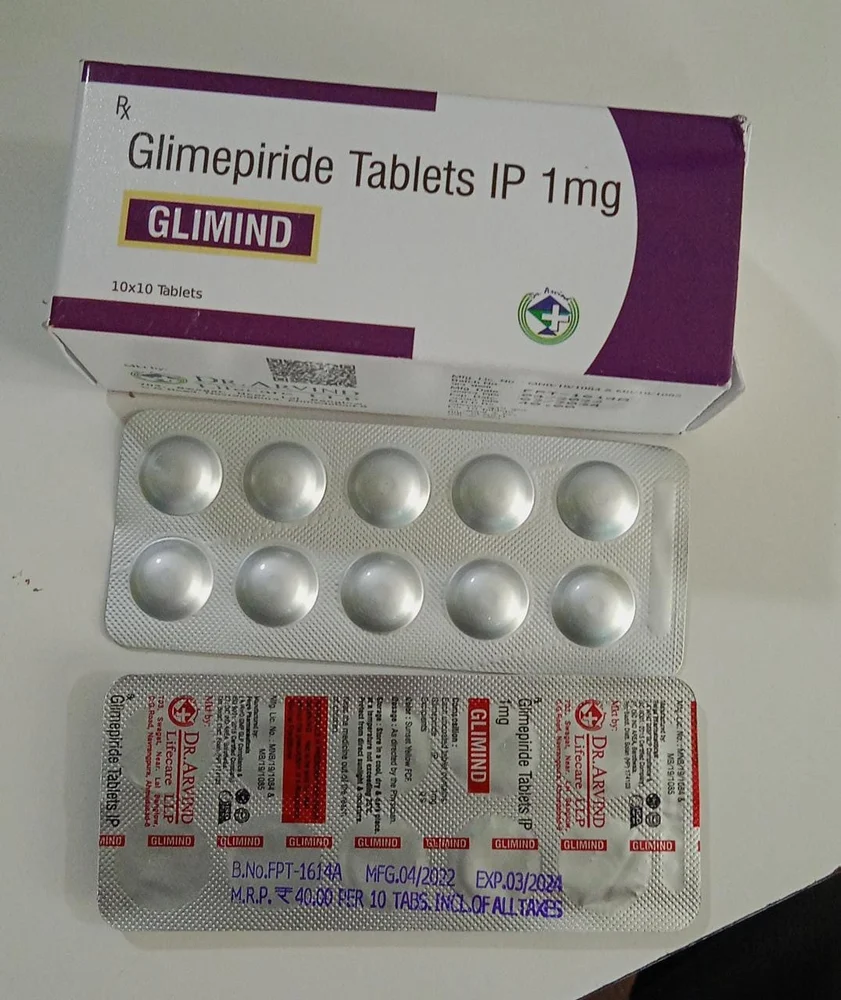🔹 Glimepiride Tablet 1 mg – As Licensed
📄 **Description:
Glimepiride** is an oral antidiabetic medication belonging to the class of sulfonylureas. It is used to manage Type 2 Diabetes Mellitus by helping the pancreas release more insulin and increasing insulin sensitivity in peripheral tissues.
💊 Prescription / Use:
- Indications:
- Management of Type 2 Diabetes Mellitus (non-insulin-dependent) when diet and exercise alone are insufficient
- May be used as monotherapy or in combination with other antidiabetic agents (e.g., metformin, insulin)
- Dosage/Form:
- Oral tablet, usually taken once daily with breakfast
- Strengths: 1 mg, 2 mg, 3 mg, 4 mg (you specified 1 mg)
- Schedule H Drug: Prescription required under Drugs and Cosmetics Rules, 1945
🔬 Nature:
- Sulfonylurea derivative
- Hypoglycemic agent
- Mechanism of Action:
- Stimulates beta cells of the pancreas to secrete insulin
- Enhances peripheral glucose uptake
- Lowers blood glucose in a glucose-dependent manner (less risk of hypoglycemia compared to older sulfonylureas)
🌟 Advantages:
- Effective once-daily dosing
- Proven efficacy in blood glucose reduction
- Can be used with metformin or insulin
- Lower incidence of hypoglycemia than some other sulfonylureas
- Cost-effective and widely available
📦 Common Packaging:
- Blister pack of 10 tablets (1 mg per tablet)
- Box of 10×10 tablets for institutional supply
- Labeled with:
- Drug name and strength
- Manufacturing license number
- Batch number, Mfg/Exp dates
- Storage conditions
🧊 Storage:
- Store in a cool, dry place, below 25–30°C
- Protect from moisture and light
- Keep out of reach of children
⚠️ Precautions:
- Risk of hypoglycemia — especially in elderly, renal/hepatic impairment, irregular meals
- Avoid alcohol (can cause disulfiram-like reactions and potentiate hypoglycemia)
- Use cautiously in hepatic or renal dysfunction
- Regular monitoring of blood glucose and HbA1c is recommended
- Not for use in Type 1 Diabetes or Diabetic Ketoacidosis
👩⚕️ Patient Advice:
- Take tablet once daily with breakfast
- Do not skip meals after taking medication
- Monitor blood sugar regularly
- Carry sugar (glucose tablets or candy) in case of hypoglycemia symptoms:
- Sweating, dizziness, tremors, confusion
- Inform your doctor if you’re planning surgery or experiencing infections
- Avoid self-adjusting the dose
- Do not discontinue without consulting your healthcare provider

